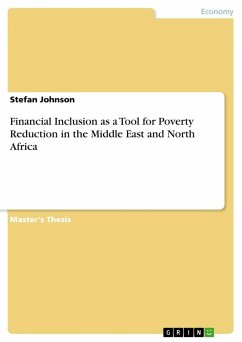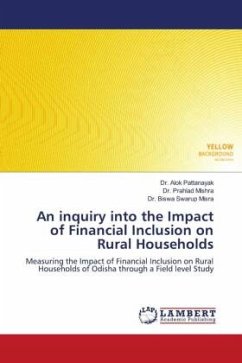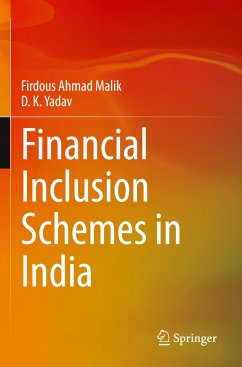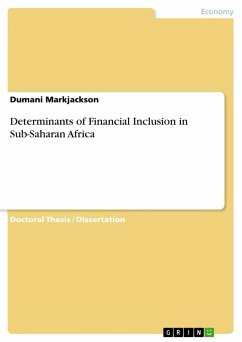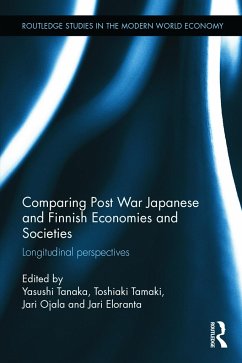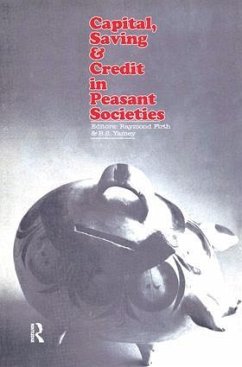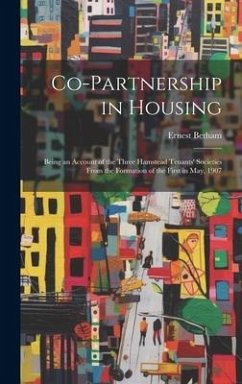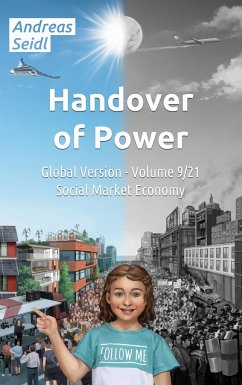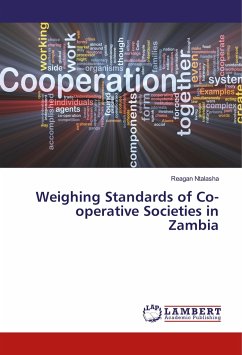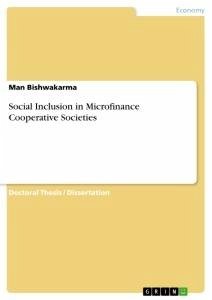
Social Inclusion in Microfinance Cooperative Societies

PAYBACK Punkte
0 °P sammeln!
Doctoral Thesis / Dissertation from the year 2010 in the subject Economics - Finance, Tribhuvan University (Faculty of Humanities and Social Sciences), course: PhD, language: English, abstract: Microfinance, in these days, has become a global concern. Generally, microfinance means the financial services to the poor. Most of the micro-finance initiatives have economic goals of reducing poverty and tackling the marginalization of the poor particularly the deprived section of the society. Microfinance is a mix of financial and social intermediation. It was commenced through cooperative from the m...
Doctoral Thesis / Dissertation from the year 2010 in the subject Economics - Finance, Tribhuvan University (Faculty of Humanities and Social Sciences), course: PhD, language: English, abstract: Microfinance, in these days, has become a global concern. Generally, microfinance means the financial services to the poor. Most of the micro-finance initiatives have economic goals of reducing poverty and tackling the marginalization of the poor particularly the deprived section of the society. Microfinance is a mix of financial and social intermediation. It was commenced through cooperative from the mid-19th century with initiating the saving of 28 pounds from a group of factory workers of ¿Rochdale society of equitable pioneers¿ in the United Kingdom. In Germany, Freidrich Raiffeisen introduced the community based credit cooperative society in 1864. It was the first Credit Organization in the world. In Asia, the concept of cooperative introduced officially in 1904 from India and further extended to other countries. Similarly, the popular model of microfinance developed in latter century is Grameen Bank model pronounced by Muhammad Yunus in 1976. Social exclusion discourses developed in response to criticisms of the term poverty and describe the process that leads to individuals or groups being wholly or partly excluded from full participation in society. Nepal remained as Hindu kingdom for a long time; most social and cultural value has been dominated by the caste hierarchical system. Age long caste-based practices made ¿Dalits¿ most deprived in the society. Building inclusive financial system has been the global agenda since the start of twenty first century. Likewise, social inclusion has been the top political agenda around the globe. Social Inclusion Factor established in this research is a noble tool to measure the magnitude of inclusiveness. One of the major findings is that inclusiveness promotes sustainability. Likewise, small income changes for the very poor have proportionately much greater impacts on livelihood, than those for the better off. The research has come out with some recommendations with some new approaches in microfinance to make it more inclusive. Credit-first approach to the most deprived groups based on analyzing poverty status of the clients is one. Likewise, providing credit plus intermediation on the basis of individual capacity deprivation is other recommendation which emphasizes on individual intervention to the most deprived clients/members. Considering the complexities of MFC it has structured an approach called ¿community owned microfinancing¿ to reach down to the poorest of the poor .




